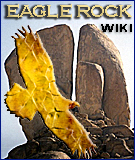Difference between revisions of "Research page:North Korea"
From eagle-rock.org
| Line 3: | Line 3: | ||
* [[Research page:Korean sacred sites]] | * [[Research page:Korean sacred sites]] | ||
| + | |||
| + | |||
| + | == References == | ||
| + | |||
| + | <references /> | ||
== External links == | == External links == | ||
* [http://jeresearchtopics.blogspot.com/2011/01/features-of-north-korea.html Research Topics: Features of North Korea] | * [http://jeresearchtopics.blogspot.com/2011/01/features-of-north-korea.html Research Topics: Features of North Korea] | ||
Revision as of 16:54, 24 May 2012
See also
References
External links
- Research Topics: Features of North Korea
- Research Topics: North Korea
- Research Topics: North Korea's nuclear power
- Research Topics: Oppression in North Korea
Books
- Architecture and urbanism in North Korea This website gives excerpts from a new book about architecture in North Korea and its role as a propaganda tool.
Dated news articles
- Pyongyang paints history in its own image[1] By Andrei Lankov, May 11, 2012
- North Korea redefines 'minimum' wage By Andrei Lankov, April 25, 2012
Videos
- A Forest Is Swaying (1982, English Subtitles) This is a movie made in North Korea. This mix of fairy tale and propaganda is interesting to watch if you want to learn more about how North Korea works. Kim Il Sung is mentioned frequently as 'The President' in bold print, and is presented as the one who inspires great deeds, while the Yankees are blamed for the eroded mountain slopes. The movie ends with tears of gratitude and a hymn of praise for Kim Il Sung when the hero of the movie gets to meet him. (JE)
- Inside North Korea - VICE Travel - Part 1 of 3 "Vice founder Shane Smith managed to get into North Korea after a year and half of trying and is witness to the craziness of this hermit nation." - Published on Dec 19, 2011
- YouTube site with links to North Korean movies, some of them with English subtitles
- ↑ Quotes from the article:
- A quick look at North Korean history textbooks immediately demonstrates that history as presented to North Korean audiences is dramatically different from the history studied outside the reach of juche (self-reliance) ideologues and their police enforcers. Many important facts are omitted from the North Korean versions of national history, while many "facts" are invented or grossly blown out of proportion to push audiences toward the politically proscribed conclusions.
First, North Korean ideologues want their readers to believe that Korean history is more "ancient" than the history of nearly all other societies. Second, they want to play down or deny foreign influences on Korean history and culture or present such influences as inherently evil. Third, they want to demonstrate that it was the northern half of the Korean Peninsula that always played the decisive role in shaping Korean history.
- North Korea's official historians do not want to admit that the ancestors of the present-day population may have come to Korea from elsewhere.
- Another important taboo is the idea that the Korean language might have common origins with any other language of the world - especially Japanese.
- North Korean archeologists discovered (or rather invented) the "Taedong River culture" that is claimed to be one of the world's most advanced cultures, in the third millennia BC. The Korean Peninsula - or, to be more precise, the Pyongyang region - has therefore become one of the world's five cradles of civilization (the other four being Egypt, Mesopotamia, India and China).
- Koguryo is presented as the most authentic, and so to say, most Korean of all ancient Korean kingdoms, far superior to the two other states - Paekje and Silla... Koguryo is presented as the direct predecessor of the North Korea of today.
